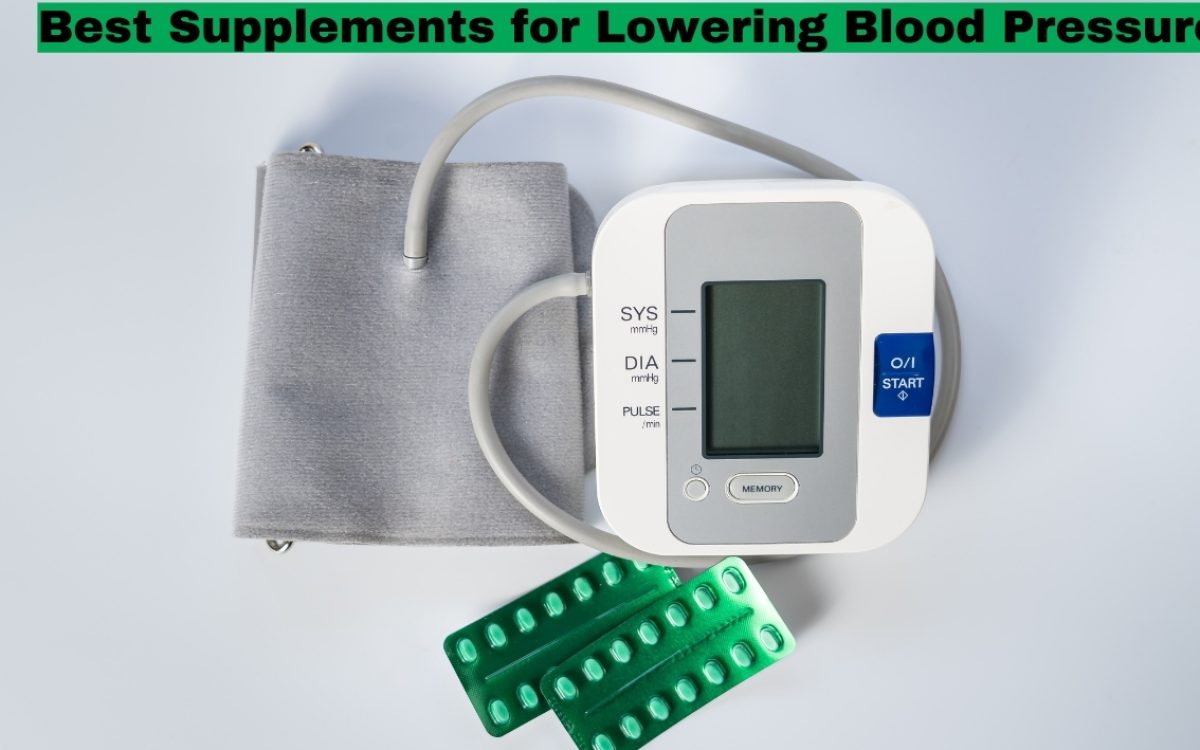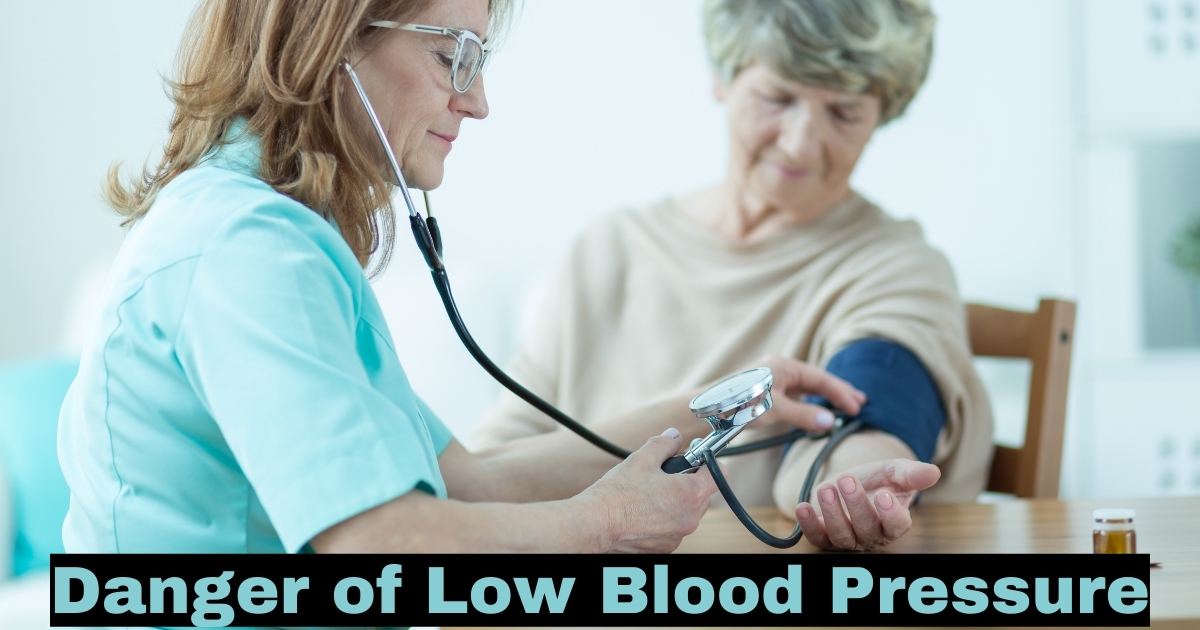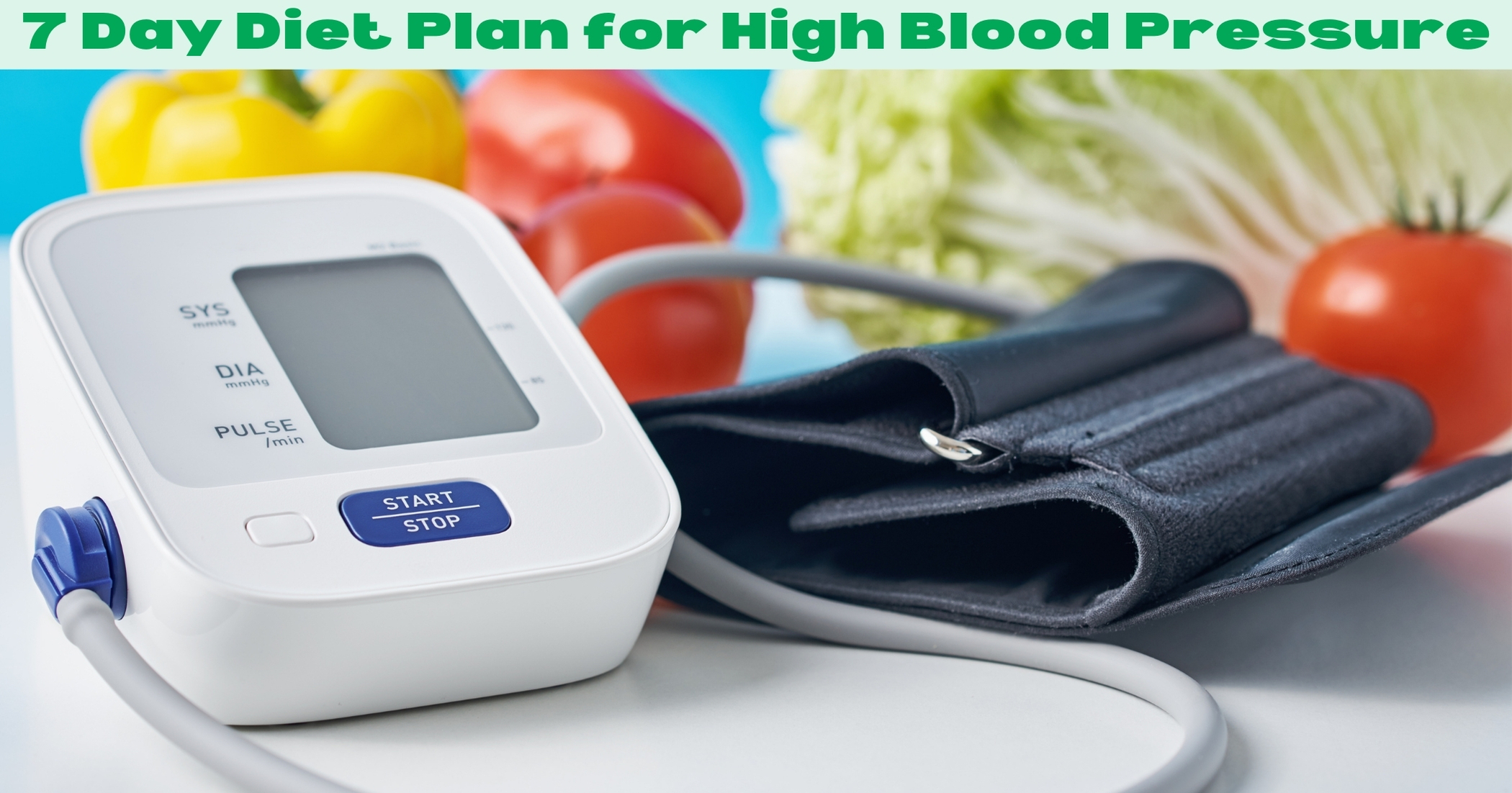Let’s say you wake up in the morning feeling refreshed and ready to go. Now, picture yourself being sure of your ability to stay healthy and having no trouble controlling your blood pressure. You can make this happen if you take the right steps. A lot of people want it to be true. Many people today are stressed out and make bad decisions about how to live their lives, so it’s very important to find good ways to control blood pressure. This is where the thought of “Best Supplements for Lowering Blood Pressure” comes in. These supplements are a natural and all-around way to control blood pressure, along with normal treatments and changes to your lifestyle.
The cool world of vitamins will be explained, along with how they can help you reach your health goals, mainly by lowering blood pressure. To take charge of your heart health, you need to understand the science behind these vitamins and how they work.
Table of Contents
ToggleThe Role of Supplements in Blood Pressure Management
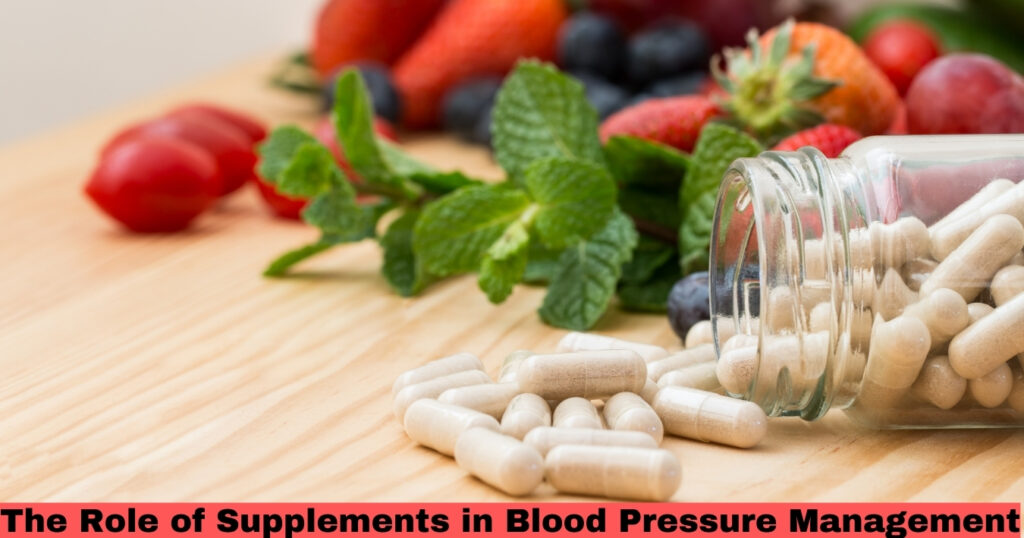
There is no way to overstate how important vitamins are for keeping your health in good shape and controlling your blood pressure. Best supplements for lowering blood pressure are very important for supporting heart health and working with changes in your lifestyle.
Supplements are an easy and effective way to make sure your body gets the nutrients it needs that it might not be getting from food alone. Even though whole foods and a well-balanced diet are important, supplements can help fill in the holes and offer extra benefits for managing blood pressure.
Important Foods for Heart Health
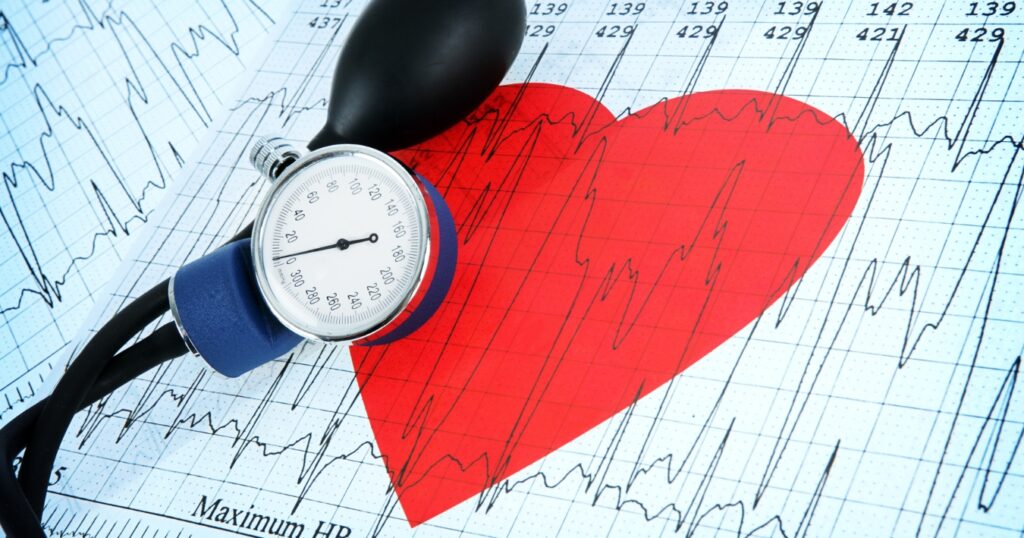
For the best cardiovascular health, making sure your body gets the foods it needs is very important. These nutrients are very important for keeping blood pressure in check and lowering the risk of heart disease. They also help with general health. Let’s talk about some of the most important foods for heart health.
Potassium, which is often called “nature’s blood pressure regulator,” is an important part of keeping blood pressure levels good. This important mineral helps relax blood vessel walls and improve circulation by counteracting the effects of salt in the body. According to the American Heart Association, people with high blood pressure can lower their blood pressure by up to 4 mm Hg by eating more potassium. Oranges, bananas, spinach, and sweet potatoes are all high in potassium. People who might not be getting enough potassium from their food alone may also benefit from taking potassium pills.
Another important mineral for heart health is magnesium, which is also a key part of more than 300 biochemical events in the body, such as making energy, keeping muscles working, and sending messages between nerves. Studies have shown that not getting enough magnesium is linked to a higher chance of heart disease and high blood pressure. People may see improvements in their blood pressure and general heart health by taking magnesium supplements. Nuts, spinach, avocado, and vegetables are all high in magnesium.
Calcium is best known for keeping bones healthy, but it is also very important for heart health. Calcium plays a part in muscle contraction, which includes heart muscle contraction. Making sure you get enough calcium is important for keeping your heart healthy and supporting its general function. Calcium is found in large amounts in dairy products, leafy veggies, and foods that have been added to them.
The “sunshine vitamin,” vitamin D, is important for strong bones and a healthy immune system. New studies show that vitamin D helps keep blood pressure in check. Studies have found that not getting enough vitamin D is linked to a higher chance of high blood pressure and other heart problems. Vitamin D can mostly be found in sunlight, but some people may need to take supplements, especially if they don’t get much sun or live in northern regions.
Adding these important nutrients to your diet can help keep your heart healthy and lower your risk of high blood pressure and heart disease. However, it’s best to get these nutrients from a healthy, well-balanced diet whenever possible, and you should talk to a doctor before starting any new supplement plan.
Potassium is nature’s way of controlling blood pressure.
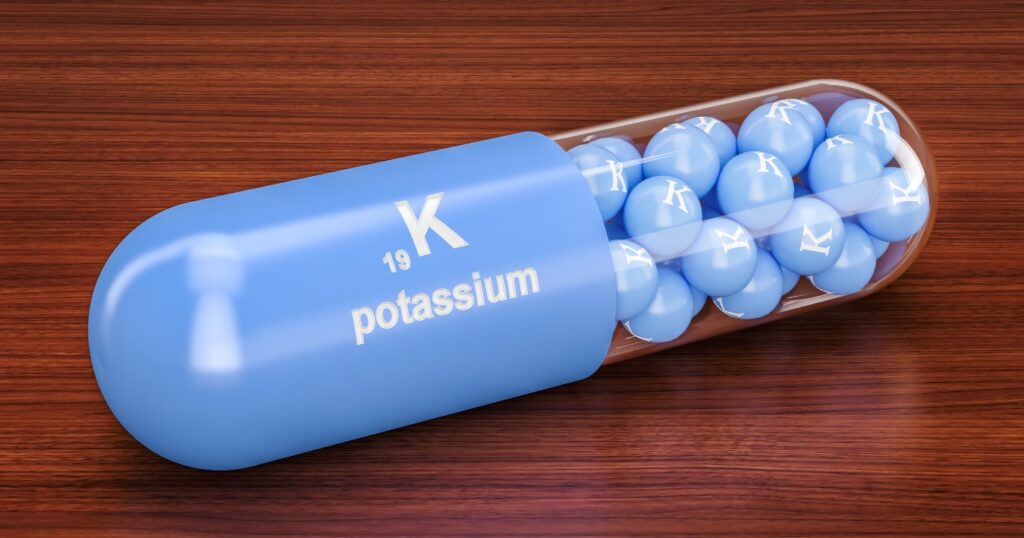
Potassium is an important chemical that keeps blood pressure in check. It is very important for keeping blood pressure in a healthy range because it balances the body’s fluids by working against salt. Sodium can make you hold on to water and increase the volume of your blood, but potassium can help counteract these effects by making it easier for your body to get rid of extra sodium through pee. Potassium not only helps keep the balance of fluids in the body, but it is also very important for the health of smooth muscles, such as those in blood vessels. By relaxing the walls of blood vessels, potassium lowers peripheral resistance and makes blood move more smoothly, which in turn lowers blood pressure.
Researchers have found over and over that potassium can help control blood pressure. People with high blood pressure whose potassium diet goes up have been linked to lower systolic and diastolic blood pressure. The American Heart Association says that systolic blood pressure can drop by as much as 4 mm Hg if people eat the suggested amount of potassium each day, which is about 3,500 to 4,700 mg. Focus on eating foods that are high in potassium, like bananas, sweet potatoes, spinach, avocados, and oranges, to get more of it in your diet. Also, potassium supplements can be an easy way to make sure you get enough of the mineral every day, especially for people who have trouble getting enough potassium from their food alone. By using potassium to its full potential, you can help keep your blood pressure in a healthy range and improve your general cardiovascular health.
Magnesium is an important mineral for heart health.

Another important mineral that helps keep your heart healthy is magnesium, which helps keep your blood pressure in check. Magnesium is one of the most common minerals in the body. It is involved in many biochemical processes, such as those that make energy, keep muscles working, and send messages between nerves. Magnesium plays a number of roles in controlling blood pressure. One of the main ways it works is by relaxing blood vessels, which lowers peripheral resistance and makes blood move more smoothly. The renin-angiotensin-aldosterone system, which is a key part of controlling blood pressure, also works better when magnesium is present.
A lack of magnesium has been linked to a higher chance of high blood pressure. Taking supplements may help lower blood pressure, especially in people who already have high blood pressure. By making endothelial work better, lowering oxidative stress, and increasing vasodilation, magnesium can help blood vessels stay healthy and blood pressure goes down. Including foods that are high in magnesium in your diet can help keep your heart healthy. Nuts, seeds, leafy greens, whole grains, and beans are all great foods that are high in magnesium and can help you make sure you get all the magnesium you need every day. Additionally, magnesium pills are available for people who may require extra help, but it is important to talk to a medical professional before beginning any new supplement plan. By making magnesium intake a priority, you can improve your heart health, lower your risk of high blood pressure, and help your blood pressure automatically drop.
Getting the Most Out of Coenzyme Q10 (CoQ10)
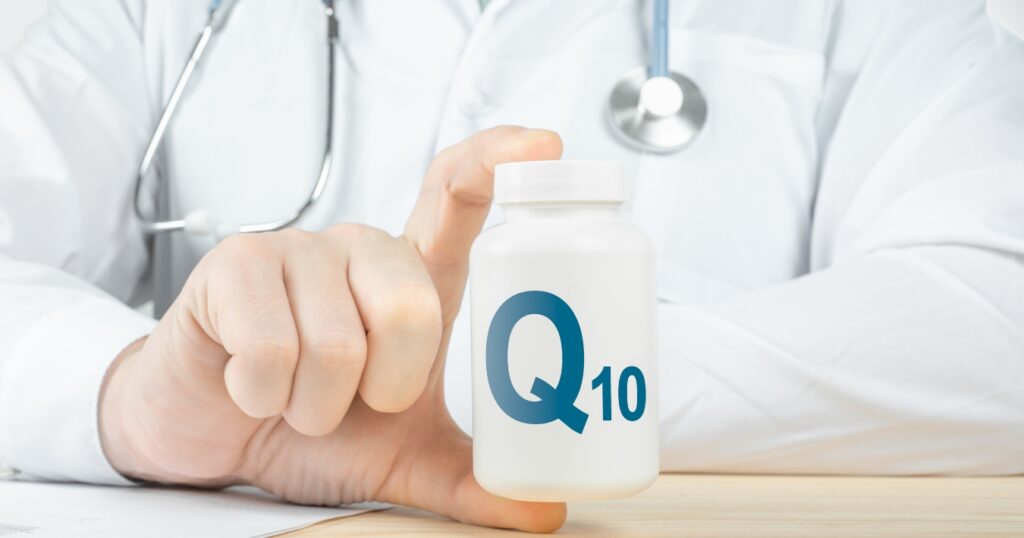
Coenzyme Q10, or CoQ10, is a strong antioxidant that the body makes itself and is very important for making energy in cells. CoQ10 is important for energy production, but it has also gotten a lot of attention for its possible heart health benefits, such as lowering blood pressure. CoQ10 may help lower blood pressure by making vascular cells work better. Endothelial cells cover the inside of blood vessels and are very important for keeping the structure and flow of blood in check. By improving endothelial function, CoQ10 can help blood vessels relax, lower peripheral resistance, and make blood move more smoothly, all of which can help lower blood pressure.
Taking extra CoQ10 has been shown to have positive effects, especially in people with high blood pressure. Studies have shown that taking extra CoQ10 may lower both systolic and diastolic blood pressure by a large amount. People may start to feel better within a few weeks to a few months of starting the supplement. CoQ10 not only lowers blood pressure, but it also helps fight free radicals and lowers oxidative stress in the body. CoQ10 can help heart health even more by lowering oxidative stress and inflammation and lowering the risk of complications linked to high blood pressure.
CoQ10 pills can be a helpful addition to your health routine, especially for people who want to keep their hearts healthy and keep their blood pressure under control. Nevertheless, it is important to talk to a doctor before beginning any new supplement plan, especially if you already have a health problem or are taking medicine. Utilizing the power of CoQ10 can help you take strategic steps toward better heart health and optimal blood pressure levels.
Omega-3 Fatty Acids: Heart Health Benefits of Fish Oil
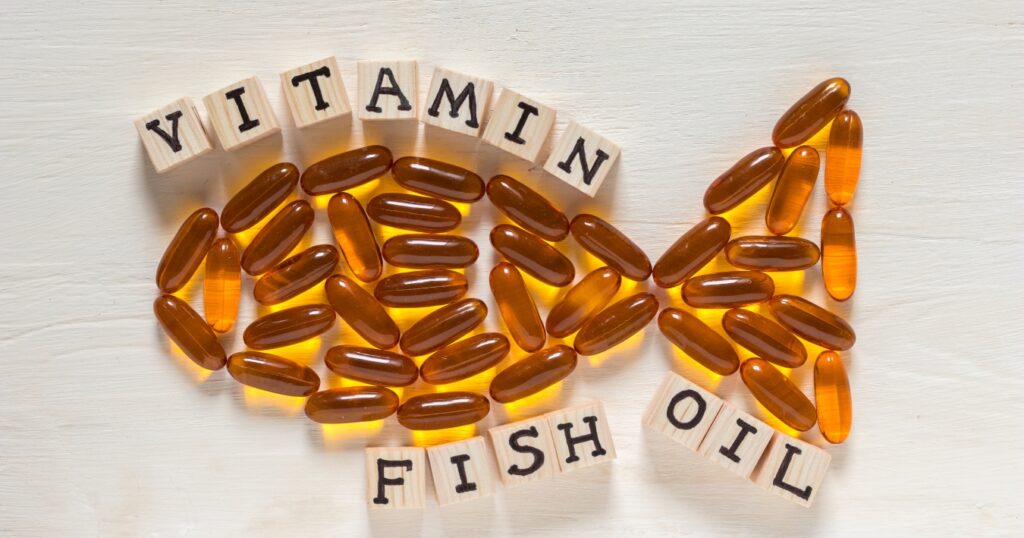
Omega-3 fatty acids, which can be found in fish oil, are known to be good for your health in many ways, but especially for your heart. Essential fats like eicosapentaenoic acid (EPA) and docosahexaenoic acid (DHA) are very important for lowering inflammation, improving lipid profiles, and supporting heart health in general.
As one of their main effects, omega-3 fatty acids may help lower blood pressure by making blood vessels less narrow and more open. Omega-3 fatty acids can help lower blood pressure by increasing the production of nitric oxide, a powerful vasodilator that relaxes blood vessels, lowers peripheral resistance, and makes blood move more smoothly. Taking omega-3 fatty acid supplements has been shown to help control blood pressure, especially in people who already have high blood pressure. Some studies show taking fish oil or omega-3 fatty acid supplements may lower systolic and diastolic blood pressure by a small amount. Over time, these levels may get better.
Omega-3 fatty acids not only lower blood pressure but also help reduce inflammation in the body and lower the risk of heart disease. Because they reduce inflammation, omega-3 fatty acids can also help keep your heart healthy and lower your blood pressure. Fatty fish like salmon, mackerel, and sardines are good sources of omega-3 fatty acids that you can get from food. One way to get omega-3s that are good for your heart is to eat fish at least twice a week. Alternatively, fish oil products are available for people who don’t eat fish often or who need extra help. Utilizing the benefits of omega-3 fatty acids can help keep your heart healthy, lower inflammation, and naturally lower your blood pressure.
Natural Ways to Lower Blood Pressure with Garlic Supplements
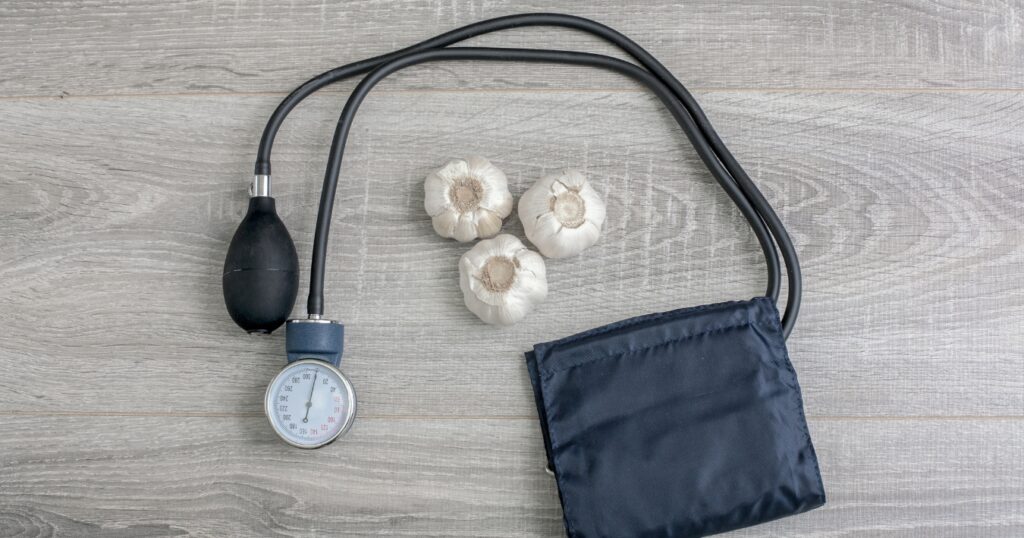
The bulbs of the garlic plant are used to make garlic supplements. The bulbs contain bioactive chemicals like allicin, diallyl disulfide, and diallyl trisulfide. People think that these chemicals help garlic’s health benefits, like its ability to lower blood pressure. According to research, taking garlic supplements may help relax blood vessels. This can make blood move better and lower blood pressure. In a study published in the journal Maturitas, taking garlic supplements lowered both systolic and diastolic blood pressure in people who already had high blood pressure. Garlic also has antioxidants that help protect blood arteries from damage and inflammation caused by oxidative stress. This is another way that garlic supports heart health. Adding garlic pills to a healthy diet and way of life may be a natural and effective way to control blood pressure and improve heart health in general.
Looking into herbal supplements: Olive Leaf and Hawthorn Leaf Extracts

Herbal products made from hawthorn and olive leaf extracts have been used for hundreds of years in traditional medicine because they may be good for the heart. The hawthorn plant’s berries are used to make hawthorn extract. This extract has flavonoids and vitamins that may help open up blood vessels and improve circulation. In the same way, olive leaf extract has chemicals in it, like oleuropein, that have been shown to relax blood vessels and may help lower blood pressure. These herbal products can help your heart health in a natural and complete way, in addition to making changes to your lifestyle and getting regular medical care. More research is needed to understand how hawthorn and olive leaf extracts work fully, but early studies show that they may be useful for people who want to improve their heart health and control their blood pressure.
Supporting Heart Health with Vitamin D and Calcium
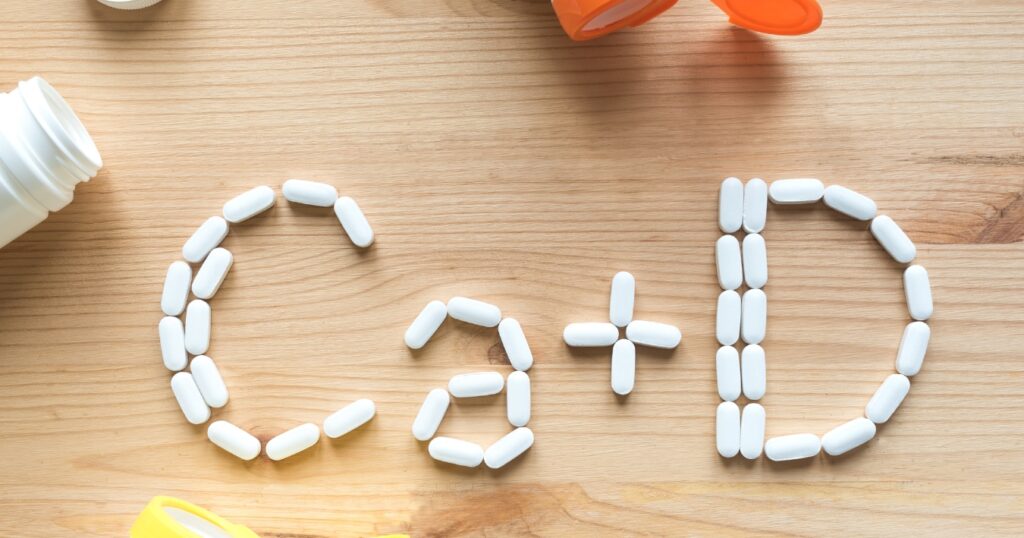
Vitamin D and calcium are important nutrients that help keep your heart healthy and your general health in good shape. It is made in the skin when it is exposed to sunshine, and you can also get it from some foods and supplements. Researchers have found that not getting enough vitamin D may be linked to a higher chance of high blood pressure. This has sparked interest in the possible role of supplements in managing blood pressure. In the same way, calcium is needed for bones to stay healthy, muscles to contract, and nerves to send messages. Not getting enough calcium in your food has been linked to higher blood pressure. Taking vitamin D and calcium-containing Best Supplements for Lowering Blood Pressure can help protect your heart health and lower your risk of developing high blood pressure. But it’s best to get these nutrients from a healthy, well-balanced diet whenever possible, and you should talk to a doctor before starting any new supplement plan.
Adding beetroot extract to your daily health routine
Beets are a root veggie that is used to make beetroot extract. It is high in nitrates, which are turned into nitric oxide in the body. A vasodilator like nitric oxide helps open up blood vessels, which makes blood move better and lowers blood pressure. Researchers have found that taking beetroot juice supplements can lower both systolic and diastolic blood pressure by a large amount, especially in people who already have high blood pressure. A study in the journal Hypertension looked at many studies and found that taking beetroot supplements was linked to a small but statistically significant drop in blood pressure. As part of your wellness practice, you can take steps toward better heart health by using Best Supplements for Lowering Blood Pressure, which contains beetroot extract. Beetroot extract is a natural and effective way to help control blood pressure. It can be taken as a concentrated substance or as juice.
L-arginine is an amino acid that can help lower blood pressure.
Best Supplements for Lowering Blood Pressure, like L-arginine, are very important for heart health because they help lower blood pressure. You can get nitric oxide from L-arginine. Nitric oxide is a molecule that helps relax blood valves and improve blood flow. L-arginine supplements may help lower blood pressure and lower the risk of complications linked to high blood pressure by increasing the production of nitric oxide.
The benefits of L-arginine on blood pressure levels have been studied and found to be positive. A study in the American Journal of Hypertension looked at many studies and found that giving people with high blood pressure L-arginine supplements greatly dropped both their systolic and diastolic blood pressure. L-arginine has also been shown to improve the function of endothelial cells, make blood vessels wider, and loosen up arteries. All of these things help keep blood pressure in check.
Adding L-arginine to your health routine may be a natural and effective way to help keep your blood pressure in a healthy range. Nevertheless, it is very important to talk to a doctor before beginning any new supplement plan, especially if you already have a health problem or are taking medicine.
Flaxseed and green tea extract: more ways to treat high blood pressure
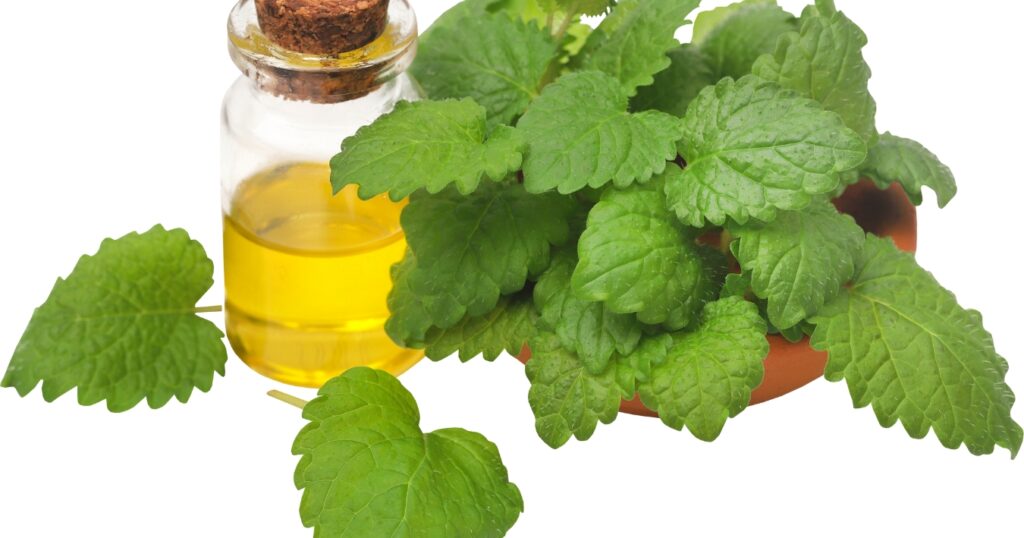
If you want to improve your health and control your blood pressure, trying new things like flaxseed and green tea extract can be very helpful. Researchers have looked into whether these two natural products can help keep your heart healthy and lower your blood pressure.
Flaxseed has a lot of alpha-linolenic acid (ALA), an omega-3 fatty acid that has been linked to many health benefits, such as protecting the heart. Studies have shown that taking flaxseed supplements may help lower blood pressure, especially in people who already have high blood pressure. Flaxseed is also a good source of dietary fiber, which can help keep your heart healthy by keeping your cholesterol levels in check and making digestion better.
In the same way, green tea extract has bioactive molecules called catechins that work as antioxidants and pain relievers. These catechins, especially epigallocatechin gallate (EGCG), have been linked to better heart health and better control of blood pressure. Researchers have found that drinking green tea or green tea extract on a daily basis may help lower blood pressure and lower the risk of getting heart disease.
Adding flaxseed and green tea extract to your diet or taking supplements can help you control your high blood pressure even more. These natural options are a tasty and healthy way to improve your heart health and general well-being. You can sprinkle ground flaxseed on yogurt or salads or enjoy a soothing cup of green tea.

